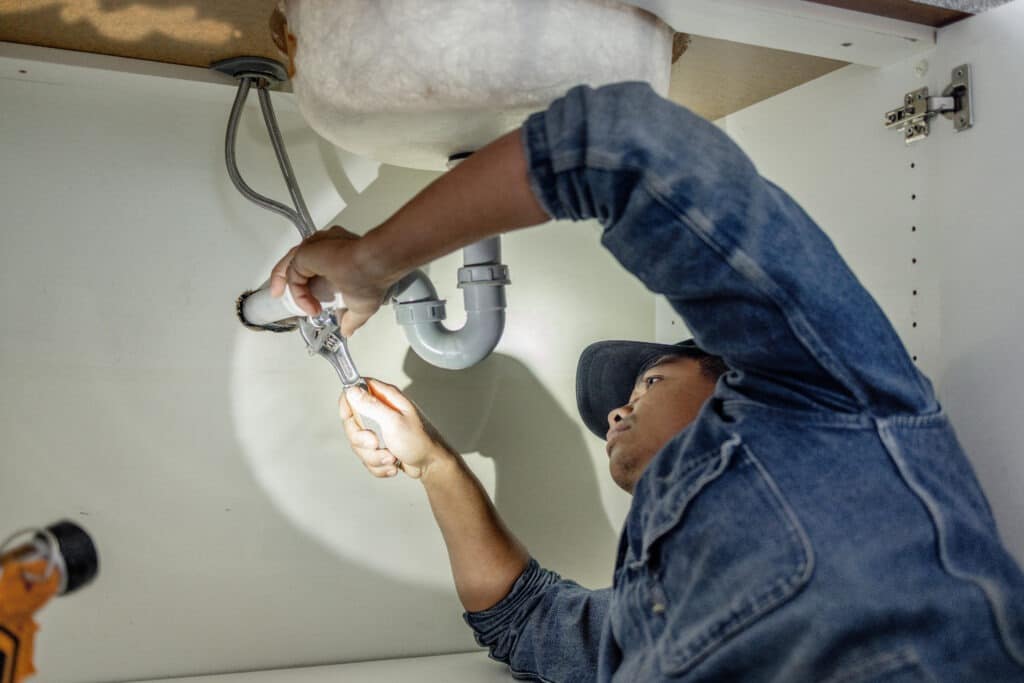Ways to Manage Your Bathroom Plumbing: Advice for New Homeowners
Ways to Manage Your Bathroom Plumbing: Advice for New Homeowners
Blog Article
Nearly everybody may have their personal way of thinking when it comes to Plumbing Tips for New Homeowners.

For new home owners, understanding and maintaining bathroom plumbing can conserve both money and time by protecting against expensive issues down the line. Below are some vital restroom pipes suggestions to assist you keep whatever running efficiently.
Plan For Winter
Safeguard your pipes from cold throughout winter by shielding pipes in unheated locations like cellars, attics, and garages. During severe cool, let cold water drip from taps offered by revealed pipelines to aid prevent cold.
Set Up Normal Upkeep
Take into consideration organizing yearly evaluations with a certified plumbing. They can spot issues that you could miss, such as covert leaks or damage on pipelines and components. Routine upkeep aids extend the life of your plumbing system and can protect against emergency situations.
Familiarize Yourself with the Main Shut-Off Shutoff
Knowing where the major water shut-off valve lies in your house is important. This allows you to swiftly shut off the water supply in case of significant leaks or during plumbing emergencies, avoiding comprehensive water damage.
Consistently Examine for Leakages
Tiny leakages can bring about big problems. Frequently examine under sinks, around toilets, and near plumbing components for any kind of indications of leakages. Search for moisture, little drips, or corrosion. Catching and fixing leaks early can stop much more serious damage and conserve water.
Preserve Your Water Heater
Guarantee your water heater is readied to an ideal temperature level (typically about 120 levels Fahrenheit) to avoid scalding and reduce energy usage. Flush the tank annually to remove debris accumulation, which can lower the efficiency and life-span of your heater.
Upgrade Your Fixtures
If your home has older components, take into consideration updating to extra reliable models. Modern toilets, showerheads, and taps are made to make use of much less water while offering great pressure, which can considerably reduce your water bill and environmental footprint.
Be Cautious with DIY Plumbing Repairs
While it's tempting to manage all home fixings on your own, be cautious with plumbing. Some concerns could call for expert knowledge, specifically if they involve primary water lines or sewer fixings. Working with a specialist can sometimes be a lot more cost-effective than DIY, specifically if it protects against further damage.
Do Not Disregard Slow Drains
If your sink or tub is draining pipes gradually, it's frequently an indication of a blockage creating. Resolving this very early can prevent a total clog. Make use of a bettor or a plumbing professional's serpent to remove debris. Prevent using chemical drain cleaners as they can harm your pipelines with time.
Know What Not to Flush
Bathrooms are not garbage disposals. Prevent flushing anything other than bathroom tissue and human waste. Products like wipes, womanly hygiene products, and cotton bud need to be dealt with in the garbage to avoid blockages and sewer backups.
Set Up Strainers in Drains
Place strainers in your sink and tub drains pipes to catch hair and various other particles before they enter your pipes system. Cleaning up the filters regularly will assist stop buildup and maintain water flowing freely.
Verdict
Comprehending and keeping your home's bathroom plumbing can stop several usual issues. By following these necessary pointers, you can guarantee your washroom remains functional and effective, conserving you time and money over time.
Essential Plumbing Tips for Homeowners: Keep Your Pipes Flowing Smoothly
As a homeowner, understanding the basics of your plumbing system can save you time, money, and a lot of headaches. Plumbing issues can range from minor annoyances like dripping faucets to major problems like burst pipes that cause significant damage. This guide provides essential tips to help you maintain your plumbing system and tackle common issues.
Understanding Your Plumbing System
Supply System: Brings fresh water into your home from a municipal source or a well. Drain-Waste-Vent System: Removes wastewater and vents sewer gases outside. Fixtures and Appliances: Includes sinks, toilets, showers, dishwashers, and washing machines. Basic Maintenance Tips
Regular Inspections: Periodically check for leaks, corrosion, and other signs of wear and tear. Look under sinks, around toilets, and near water heaters. Know Your Main Shut-Off Valve: In case of a major leak, you’ll need to shut off the water quickly. Ensure everyone in your household knows where the main shut-off valve is located. Prevent Frozen Pipes: In cold climates, insulate exposed pipes and let faucets drip during extreme cold to prevent freezing. Use Strainers: Install strainers in sinks and tubs to catch hair, food particles, and other debris that can cause clogs. Common Plumbing Issues and Solutions
Clogged Drains:
Prevention: Avoid pouring grease down the drain and use drain screens to catch debris. DIY Fix: Use a plunger or a plumbing snake to clear minor clogs. For stubborn clogs, a mixture of baking soda and vinegar can sometimes help. Leaky Faucets:
Prevention: Replace washers and seals regularly. DIY Fix: Turn off the water supply, disassemble the faucet, and replace worn parts.

Call Today Report this page